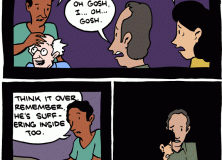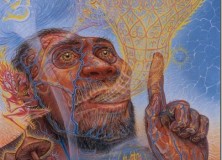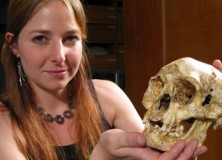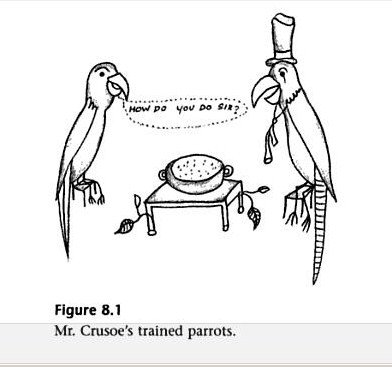I seem to be the comic poster on this blog, but hey – Mark Liberman often quotes comics on Languagelog, and it’s before breakfast for me. So I feel ok with that.
(Update: I did beat Mark Liberman! By almost 5 hours! CF. http://languagelog.ldc.upenn.edu/nll/?p=3856)
Anyway, I was reading Saturday Morning Breakfast Cereal this morning, a comic that is occasionally quite good, and I came upon this gem. I wonder who exactly he is taking a jibe at with the physicist-turned-linguist mention. Any bets?
I’m glad he said first language, and not protolanguage. Proto-world isn’t the most likely thing we’re going to find – at best, we’ll be able to get half a dozen cognates, like Ruhlen did in 1994. Ruhlen is, of course, not a physicist, but a Greenbergian linguist, so he couldn’t have been the butt of the above joke. For that matter, I can’t be either – not because I am a linguist, but because I don’t believe there was one language, and I think it isn’t theoretically sound to stipulate that there was one language at any point in our history. My argument for this view (which I learned last week isn’t necessarily common) is that a) languages don’t exist outside of their host’s minds, anyway, so language needs to be redefined as a collaborative, shared signalling system b) this wouldn’t have occurred at any point in our history, excepting perhaps for the Adam and Eve time zones c) even then, we’d have different, contacting communities that would keep ‘language’ as such as a constantly changing system that would need to be defined most clearly in relation to the other contrasting systems, and d) even within the group, there would have been considerably idiolectic variation that would have, in my unfounded opinion, been much more rife in early language than today. I’m still working on backing that up theoretically, and hopefully one day with models.
Back to the comic, I hope you didn’t miss the reference to ‘tensors’ as well. Every time I see that word, I think of The Demolished Man, a truly fantastic science fiction book where a key point in the plot is that a man can block out psychics by repeating an annoying commercial meme – Tenser, said the tensor – in his head over and over again. Since we’re talking about science fiction, the comic above also reminds me of that one Star Trek episode where it is revealed that all Kaelon’s must commit mandatory suicide so that they don’t stress society by being elderly, sort of like Sarah Palin’s ‘death panels’.










